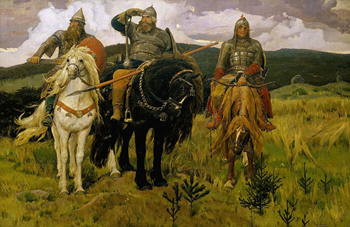by Ron Raskin

For those in the West who believe in democracy, it seems natural to expect that all nations will eventually embrace its principles as inevitable. So when a country struggles to establish democracy or abandons it, it can be difficult to accept. The truth is that democracy is a delicate flower—it won’t thrive in just any soil or climate. Countless examples have demonstrated that nations trying to plant democracies in other countries often face low odds of success, as it’s challenging to predict how their actions will be perceived by the other side, leading to highly unpredictable outcomes.
While there are numerous reasons why certain nations struggle to sustain democracy, I’d like to focus on one particular case: Russia. Russia had two brief encounters with democracy—once in 1917, which lasted less than a year before an attempt to build a utopian society of “comrades” took over, and again in 1991, which endured for about two decades before gradually deteriorating. While various factors played a role in Russia’s struggle to sustain democracy, one, in particular, stands out: the Russian mentality—a relatively stable set of societal attitudes, beliefs, values, and behaviors shared by a significant portion of the nation.
In the classical Russian mentality (though not all Russians adhere to it, many do to varying degrees), the world is divided into enemies, friends, and neutral parties. If someone is an enemy, there’s nothing to discuss—they must be defeated, period. If they’re a friend, your friend’s interests take precedence over your own; it’s a “musketeer” mindset—die for your friend if necessary. Only when someone is neither an enemy nor a friend can there be room for negotiations and strategic interests. This black-and-white, all-or-nothing approach contrasts sharply with the Western mindset, where you can compete in one area and collaborate in another, and where friends are valued, but your own interests still come first.
As a result of this black-and-white mentality, Russians swung from opposing the West to offering sincere friendship, even being willing to sacrifice their own interests because friendship was seen as more important. The decision to dissolve the Warsaw Pact felt natural, and the expectation that NATO would also disband felt equally natural. However, while the West was indeed happy to turn a new page in relations during the ’90s, it never considered giving up its own interests. Why would it?
This same black-and-white mindset made it difficult for democracy to take root. Democracy thrives on compromise, but how can you compromise with someone you see as your enemy? Even if there’s a desire to do so, the necessary skills for compromise aren’t ingrained in a culture that views the world in terms of good versus bad, black versus white.
Today, we know the outcome, and the key takeaway is that many democracies (though there may be other paths, like Japan’s) rely on a “give and take” process, deeply rooted in the mindset where each individual sees themselves as the center of their own world. It’s messy and stands in stark contrast to the clear-cut notions of good and bad that many cultures are rooted in, often being seen as immoral by those standards. Yet, it’s this very balance of competing forces that enables peace and prosperity.

